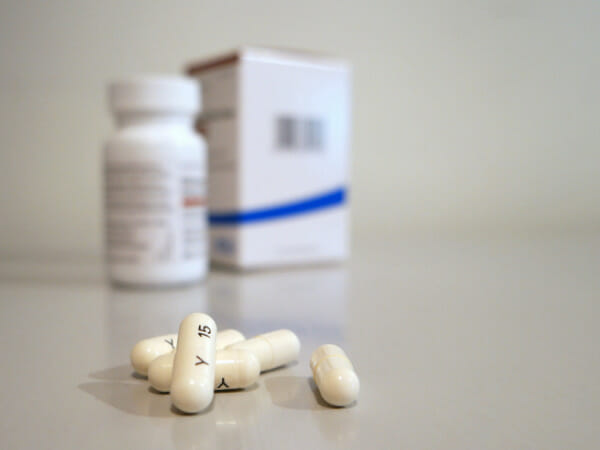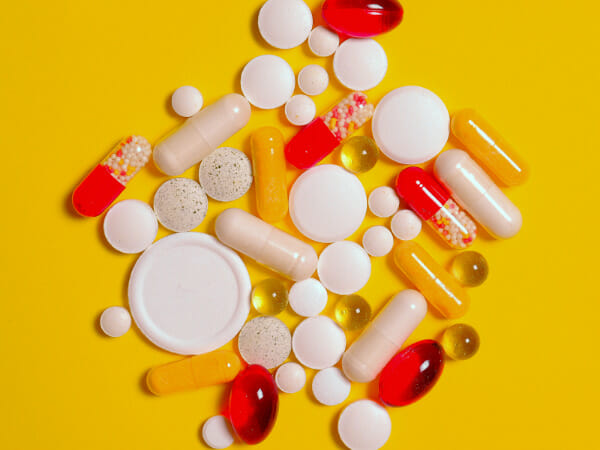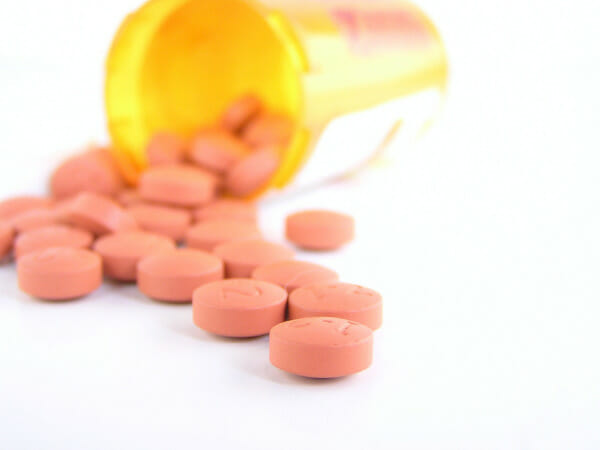What Natural Supplements for ADHD Can Do – Benefits and Reviews
Are you looking for the most effective natural supplements for ADHD patients? This article discusses the negative impact of the deficiency of these supplements, the required doses, and their benefits.
Many parents raised awareness of the zombie effect caused by ADHD medications in children. When used for the first time or in high doses, patients could start to appear spacey, sedated, irritable, or tearful. ADHD stimulants can trigger a personality change in users in the long run.
Studies show that certain organic ADHD supplements can improve patients’ lifestyles and reduce ADHD symptoms. Unlike artificial ADHD stimulants, these organic supplements have little or no side effects. That is not to say supplements can replace stimulants.
People rely on man-made stimulants like Ritalin, Adderall, and Dexedrine as medical solutions for adult ADHD.
However, the cons outweigh the pros. If you are not sure you can handle the side effects of these ADHD medications, you can bank on nutritional supplements.
While ADHD patients lack vitamins, the source of the disorder is still unknown to date.
Hence, it is incorrect to assume that the lack of vitamins is the cause of attention deficit hyperactivity disorder. In this guide, we will discuss the must-have supplements for ADHD patients in detail.
Can ADHD symptoms improve without medication?
We live in a solution age where big corporations thrive off the people’s clamor for an easy way. Artificial stimulants are products of shortcut culture.
Being enthusiastic about natural alternative treatments to phenethylamines and substituted amphetamines drugs means you are part of the minute few who have woken up to the fact that natural medicine is the safest and best form of treatment.
After many years of using attention deficit hyperactivity disorder medications, one would expect that the patient would improve psychologically. This was not the case with subjects of a scientific study from Australian researchers.
They discovered that the diastolic blood pressures of the study group members were at an all-time high. The self-esteem and social interaction of the medicated group spiraled down across the years of dependence on ADHD drugs.
Stay in the clear of food dyes and preservatives.
For most people, food dyes and preservatives have no negative effect. However, ADHD patients react negatively to food additives.
According to a Mayo Clinic study, preservatives and food colorings make children with ADHD more hyperactive. The studied food additives include quinoline yellow, sodium benzoate, sunset yellow, Allura red, and tartrazine.
Abstinence from processed foods and soda is the major way to keep these substances away from your system. Since food additives do not provide any nutritional value, it is best to stick with healthy whole foods.
Beware of allergens
Being allergic does not mean you have attention deficit hyperactivity disorder, but allergens worsen the condition of people with ADHD. In case you notice that you are allergic to certain foods, please desist from such food substances.
Common allergens include gluten, dairy products, egg, chocolate, and edibles that have salicylate and food additives.
Read More: How To Take Supplements Properly
Take natural supplements for ADHD.
Nutritional supplements help relieve symptoms like sleep onset insomnia, hyperactivity, impulsivity, chronic insomnia, and short-term memory. Later in this guide, we will discuss the essential supplements and their uses.
Participate in behavioral psychotherapy
Behavioral psychotherapy deals with the treatment of psychiatric disorders using therapeutic methods. The American Academy of Pediatrics maintains that ADHD patients should consult a behavioral therapist when they discover ADHD symptoms before using ADHD drugs.
Behavioral psychotherapy is most effective when applied from childhood. A therapist might recommend biofeedback, a type of Neurotherapy that evaluates a patient’s normal brain functions.
If you are keen on managing your condition without using ADHD medication, there are several ways in which you can achieve that goal.
What supplements help with attention deficit hyperactivity disorder?
Supplements are vitamins, vitamins, fiber, and fatty acids that help bolster our diet. Although not every dietary supplement is “essential to life,” they are quite beneficial to the human body. Here, we will restrict the supplements discussed to those beneficial to ADHD patients.
Mineral Supplement: Iron
Iron is important in producing hemoglobin, a substance that carries oxygen to the brain. Iron supplements help the cognitive function properly.
A study revealed that children with ADHD have lesser ferritin levels than non-ADHD children. Treating ADHD patients with iron supplements can reduce ADHD symptoms.
In addition, the production of dopamine is highly dependent on the availability of enough iron in the body. Dopamine is an important neurotransmitter that aids communication between brain nerve cells. The lack of dopamine affects learning, motivation, attention, heart rate, movement, and organ functions.
To decide if your child would benefit from iron supplements, you need to check their hematocrit and ferritin levels. Hematocrit refers to the iron levels in erythrocytes, aka red blood cells, while ferritin refers to the amount of iron flowing freely in the blood.
Children with ferritin levels less than 30 should be administered iron supplements of about 30 mg to 40 mg.
It is important to remember that too much iron can cause liver disease, diabetes, and heart problems. On the other hand, Iron deficiency or anemia causes tiredness and shortness of breath. Both iron deficiency and iron poisoning are not good for our health; hence, we must regularly watch our iron levels before using them.
Mineral supplement: Zinc
When normal people lack zinc, they experience symptoms close to ADHD. For ADHD patients, the symptoms worsen when they become zinc deficient. The symptoms of zinc deficiency include inattention, delayed cognitive development, and nervousness.
A 7-7-year old review of zinc deficiency studies in children with ADHD suggests that zinc improves the lifestyle of people with attention deficit hyperactivity disorder. Another peer-reviewed study proved that zinc supplements administration lowers the number of stimulants needed to operate at maximal levels by 40%.
Vitamin supplement: Vitamin D
Vitamin D is another dietary supplement deficient in children with ADHD. According to 2018 randomized controlled trials, the lower the vitamin D levels in pregnant women, the higher their chances of giving birth to offspring with ADHD.
This does not come as a surprise since vitamin D is necessary for brain development and function in young people. Still, we need more research to confirm the role of vitamin D deficiency in the development of ADHD. In addition, the vitamin helps regulate the sleep-wake cycle/sleep quality.
In stage two of the research, the researchers placed the children who lacked sufficient vitamin D into two groups, A and B. Then, the Group A members were administered vitamin D for eight weeks while group B members got a placebo. The researchers noticed promising changes in the first group of children with ADHD. Those who got vitamin D saw improvements in ADHD symptoms like hyperactivity, inattentiveness, and impulsivity. It is essential in emotional regulation.
Omega-3 fatty acids
Unlike other dietary supplements, essential fatty acids are not deficient in ADHD patients, but an EFA called omega-three fatty acids is present disproportionately. In light of a 2016 review, researchers discovered that omega-6 fatty acids were present in higher volumes than omega-three fatty acids.
They concluded that correcting the imbalance is of more importance than casually administering essential fatty acids. Hence, it is necessary to measure the amount of these EFAs in one’s body before taking them.
The role of EFAs in brain health and development should not be taken with levity. They cushion brain tissue and foster the flow of information between neurocytes. The study participants saw improvement in visual learning, attention, and short-term memory.
There is plenty of research confirming the benefits of omega-three fatty acids to ADHD patients. These supplement products often come as fish oil. However, algae oil is a better alternative medicine though you will need more to get the same amount of omega-three fatty acids.
Herb Supplement: Ginkgo Biloba
Ginkgo Biloba aka maidenhair tree is a chinese tree. The herbal supplements obtained from this tree contain terpene trilactones, chemicals that increase dopamine production and prevent brain cells from damage. According to a 2013 study, 240 mg of Ginkgo Biloba extracts were administered to young participants for five weeks. Parents testified to the positive impact of the supplement on children with ADHD.
Do not administer Ginkgo Biloba extracts to people with blood clotting disorders. Discontinue the supplement products when you start noticing side effects such as nausea, GIT upset, diarrhea, dizziness, and other allergic reactions. Herbal remedies are organic and have little or no side effects.
Herb supplement: French maritime pine bark extract
Pine bark extract harbors much proanthocyanidin, a powerful antioxidant that enhances blood flow to the brain and repairs damaged brain cells. While previous studies regarding the impact of the antioxidant on ADHD patients were promising, there is a need for more research to establish its importance.
Mineral supplement: Magnesium
Magnesium supplements can be used with stimulant medications to help maintain calmness and reduce agitation once the stimulant power reduces. It reduces the rebound effect experienced by ADHD children.
The three forms of magnesium supplements, namely magnesium glycinate, magnesium chelate, and magnesium citrate, can be administered, but the citrate form often leads to diarrhea.
Things to note when using Supplements to Improve ADHD Symptoms
There are a variety of supplements with similar nutritional benefits. The co-administration of two supplements of different brands, each containing high doses of the same vitamin or mineral, might quench the ultimate desired effect. There’s an optimal level of these vitamins required for the activity indicated for their use.
There isn’t a one-way approach to the use of supplements. It depends on the deficiencies or psychiatric disorders being managed per time.
However, there are things to watch out for when you next pick a supplement from the store.
What to watch:
Co-administration of Supplements with other supplements/vitamins/minerals/consumables
Supplement combination is a major concern when there is an issue of supplement misuse.
- You want to cut down the consumption of high-dose calcium supplements with other calcium-containing diets (e.g., yogurt, milk, cheese & green leafy vegetables – spinach). Calcium is usually prepared in supplements with large doses of ~700mg. Hypercalcemia induced by excessive calcium dietary supplements may trigger kidney malfunctions, arrhythmia, and osteoporosis.
- Conversely, an excessive dose may overwork the calcium-dependent pathways of the body and make the body dispute the uptake of necessary calcium repeatedly. Calcium supplements can be taken with vitamin D. The metabolism of calcium is largely regulated by the parathyroid hormone – Vitamin D complex (PTH-Vit D) endocrine system.
- A supplement may act to wall off the response and reactivity to another (at the site of action).
- Consuming calcium or other minerals (e.g., magnesium, iron from ferrous, and zinc) from supplements may reduce the level of carotene found in the liver and body fat, which affects the level of active retinal needed in the body. Foods and/or supplements containing carotenoids (beta-carotene, lycopene, and astaxanthin) should go along with the time for high-dose calcium intake. It is advised that you take carotene-containing foods (e.g., carrot, broccoli, cantaloupe, red and yellow pepper, tomatoes, apricot, spinach, sweet potatoes) and supplements at a different time of day when consuming high-dose calcium. Some supplements are to be consumed in isolation. Many others can be effectively co-administered with minerals, exogenous enzymes, and other supplements to provide a ceiling effect/rug effect as it may require when allowance of vitamins and minerals is important.
Supplement Dosing/Dosing Interval (Frequency)
When you’re not sure of the dose of any supplement mentioned, the rule of thumb is to determine if your supplement has a high allowance of fat-soluble vitamins and/or water-soluble vitamins. Be wary of Fat-soluble vitamins. You shouldn’t consume them liberally because of their high tendency of toxicity.
Vitamins A, E & K, Vitamin D – Calciferols (Cholecalciferol and ergocalciferol) appear naturally in the blood by biosynthesis through the UV-light activation.
People shouldn’t consume them lavishly like the water-soluble B-complex vitamins and Vitamin C.
Supplements may contain minerals, herbs or botanicals, amino acids, enzymes, and other constituents. Dietary supplements have to be watched essentially for the vitamin/mineral allowance breakdown – the information regarding the active ingredients and amount per serving (dose) comes from the manufacturer, but your healthcare provider might give you a direction on the serving, which is appropriate for you.
Dietary supplements may contain herbs such as echinacea and garlic and other products like; glucosamine, probiotics, and fish oil supplements. Information on dietary nutritional requirements for a healthy diet is in the Dietary Guidelines for Americans and any supplement fact-sheet available online.
Contact your healthcare provider to assert the use, and look for dosing information on the container/packaging body or read the leaflet.
Supplement consumption is best in the following timings:
- Pre-exercise/workout time, e.g., supplements containing protein, nitrate, caffeine, sodium, bicarbonate, carbohydrates
- During exercise, e.g., carbohydrates and calcium, magnesium, and other essential minerals
- Post-exercise, e.g., creatine, protein
Taking Supplement Before, During, or After Meal
As a rule of thumb, you can take water-soluble vitamins like folate on an empty stomach. People use fat-soluble ones (Vitamin; A, D, E, K) to aid absorption and delimit toxic side effects.
Taking certain supplements with food can reduce gastrointestinal side effects. For example, taking magnesium with food can reduce the occurrence of diarrhea, and taking iron with food can reduce the chance of stomach upset.
You should have to stick to recommendations from a physician before using any supplement related to this effect. Some bowels react to magnesium intake differently.
Supplement Specifications
Know that vitamins/minerals can also affect the absorption and effectiveness of other medications. You’ll find more specific information about this in the information on contra-indications of some medications and caution for using some supplements.
Related Articles
Final Thoughts
When you notice ADHD symptoms in a child or teen, the first step is to see a physician and get proper tests. Not everyone who develops similar clinical symptoms has the disorder, as the deficiency of vitamins and minerals can cause.
Before administering these ADHD supplements to your child, please seek professional medical advice. Both vitamin and mineral deficiencies have negative effects on normal brain function.
Managing ADHD symptoms might require stimulant medication when the condition gets chronic, and natural ADHD supplements are ineffective, especially in young adults.




